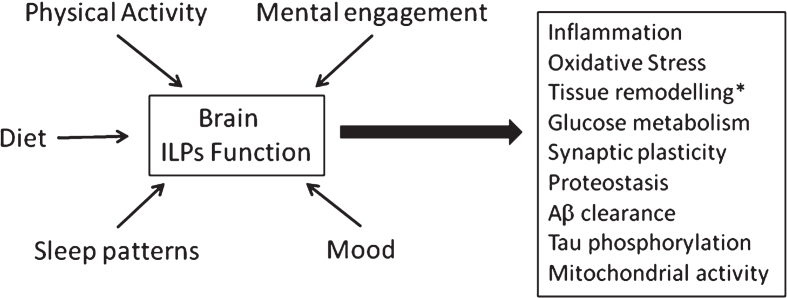Fig. 1.
Altered ILP function mediates the impact of life-style factors on pathological changes associated to Alzheimer’s disease. Diet, mental and physical activity, sleep quality and mood can modulate ILP function that in turn intervene in many processes known to be altered in AD. Main ones include homeosteatic inflammation, protection against reactive oxygen species, tissue remodelling (including formation of new vessels, neurons and glia), glucose handling by brain cells, synaptic plasticity – that in turn impacts on mood, cognition, and sleep architecture, Aβ clearance, tau phosphorylation, proteostasis (autophagy, proteosome activity) and mitochondrial function. *New neuronal formation is an important aspect of ILPs function in the adult brain. However, recent controversial evidence in favor [192] or against [193] the presence of neurogenesis in the adult human brain puts somewhat in hold the significance of this ILP trait in human physiology.

